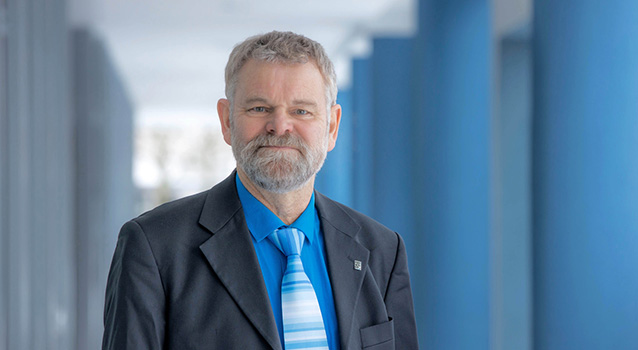Heat pumps way out of gas dependence
Borderstep co-founder Dr. Jens Clausen is co-author of a study on heat pumps presented by ScientistsForFuture just in time for the global climate strike. It shows in a model calculation that Germany can find a quick way out of gas dependency with this technology.
Modern heat pumps are technically mature and can be installed directly in the majority of buildings within about three days without major modifications. This saves time and, above all, costs. (Jens Clausen)
Just in time for today’s global climate strike, an analysis on the supply of heat by gas appears in the scientific magazine “Nature Communications Earth & Environment”. The study proves that replacing gas heating systems with heat pumps reduces gas consumption the fastest. An interdisciplinary team of scientists from Scientist for Future (S4F) have shown in a detailed model calculation that Germany can reduce in only three years up to 60% of the gas volume that was previously covered by Russian gas.
Problem Skills shortage
The team has calculated a viable change in heat supply and, for the first time, also relied on interviews in craft enterprises. The first problem to arise is the shortage of skilled workers. The 380,000 employees in German plumbing and heating companies install about one million heaters each year, an average of only about three heaters per employee per year. But: out of 50,000 companies, only 10 to 20 % regularly install heat pumps. An important control variable is therefore the approximately 5-day and obligatory further training for craftsmen, so that they can install the heat pumps.
According to the study, a prerequisite for the necessary speedy installation of heat pumps is the cooperation between the government, specialist companies and customers, which has already begun. The main author of the S4F study is Dr. Pietro Altermatt, head of the international energy modeling group “gpvsim”, Hannover. Political indecision is delaying climate protection, he said.
With heat pumps, we can use the virtually unlimited heat potential of the outside air instead of burning limited and expensive gas reserves. The companies need political planning security for this. (Pietro Altermatt)
He is supported by S4F member and co-author Prof. Dr. Claudia Kemfert from the German Institute for Economic Research.
A greatly accelerated replacement of gas boilers with heat pumps is also the right economic response to the energy crisis. We will continue to be financially burdened by fluctuating gas prices in the future.” In addition, he said, the switch offers a realistic solution “for the German government to do without long-term gas supply contracts, because these undermine the Paris climate agreement. (Claudia Kemfert)
Heat supply core energy issue
For private households, heat supply is the core energy issue. The detailed calculations of the S4F research team are based on the current state of thermal insulation in existing buildings. Radiators are also expected to remain installed in most buildings.
The critical point remains the energy issue: heat pumps need electricity and are only climate-neutral if this electricity is green. Therefore, heat pumps are in competition with other users for sustainably generated electricity. However, the study’s calculations show that despite heat pumps, enough renewable electricity remains available to continue phasing out coal and moving into e-mobility. Although some gas-fired power plants will supply electricity for heat pumps on some dark, windless days in winter, the switch will avoid gas-related emissions of more than 180 million tons of CO2 by 2025, according to the calculations.
Although the model analysis examined Germany, it is methodologically transferable to other countries.
Article published in Nature
The paper can be found at Nature Communications Earth & Environment at: Pietro Altermatt et al. (2023). „Replacing gas boilers with heat pumps is the fastest way to cut German gas consumption“.
